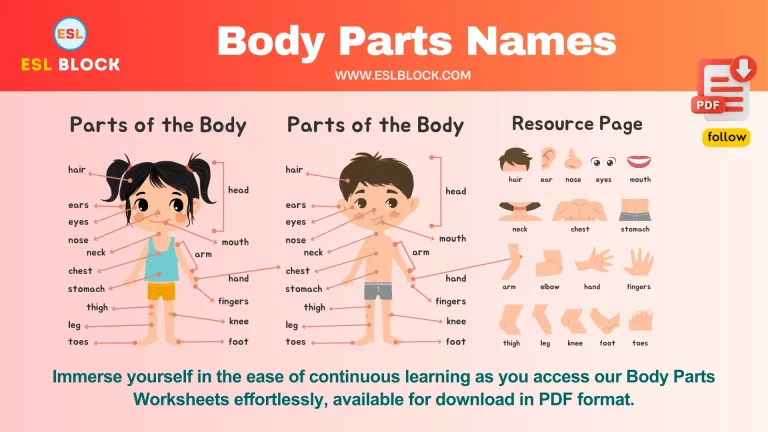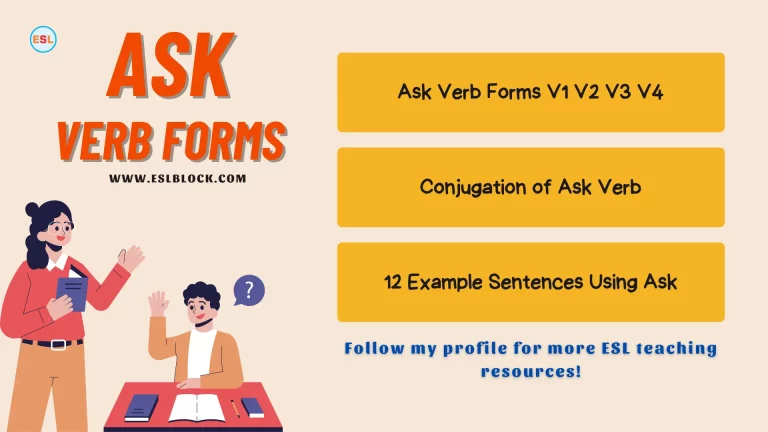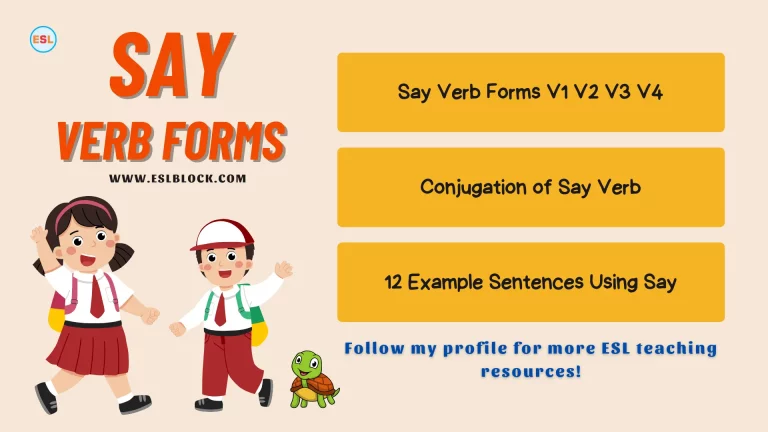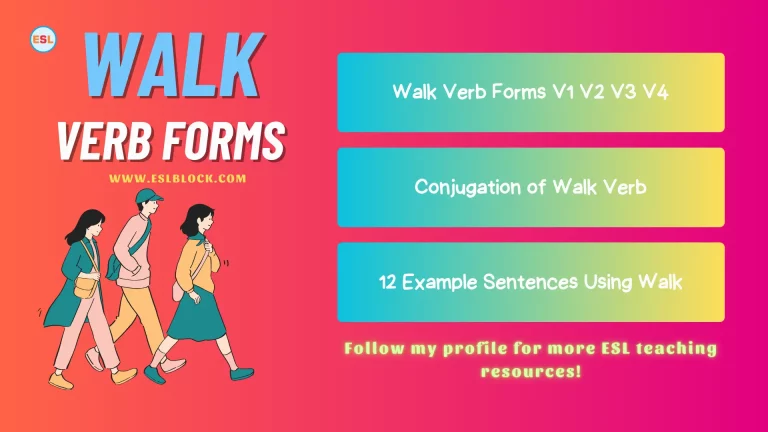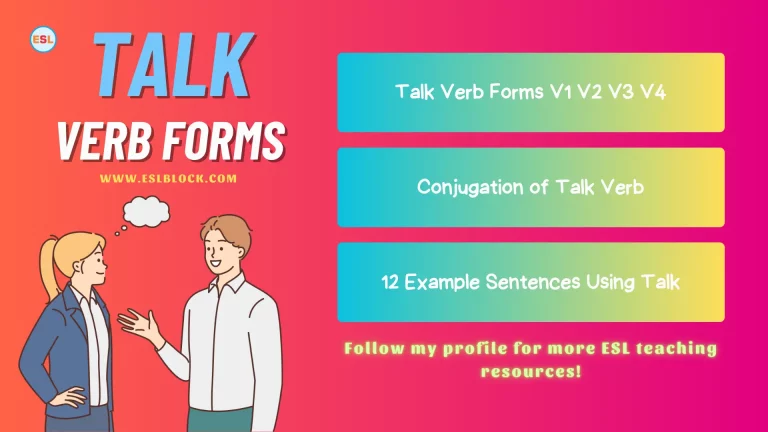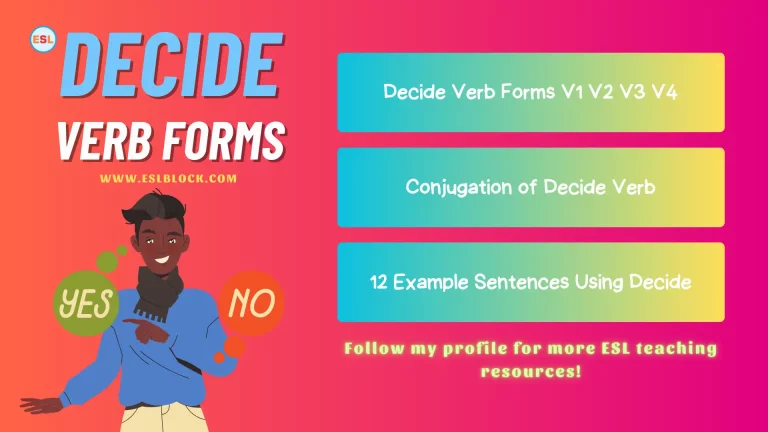Simple Future Tense Definition With Examples
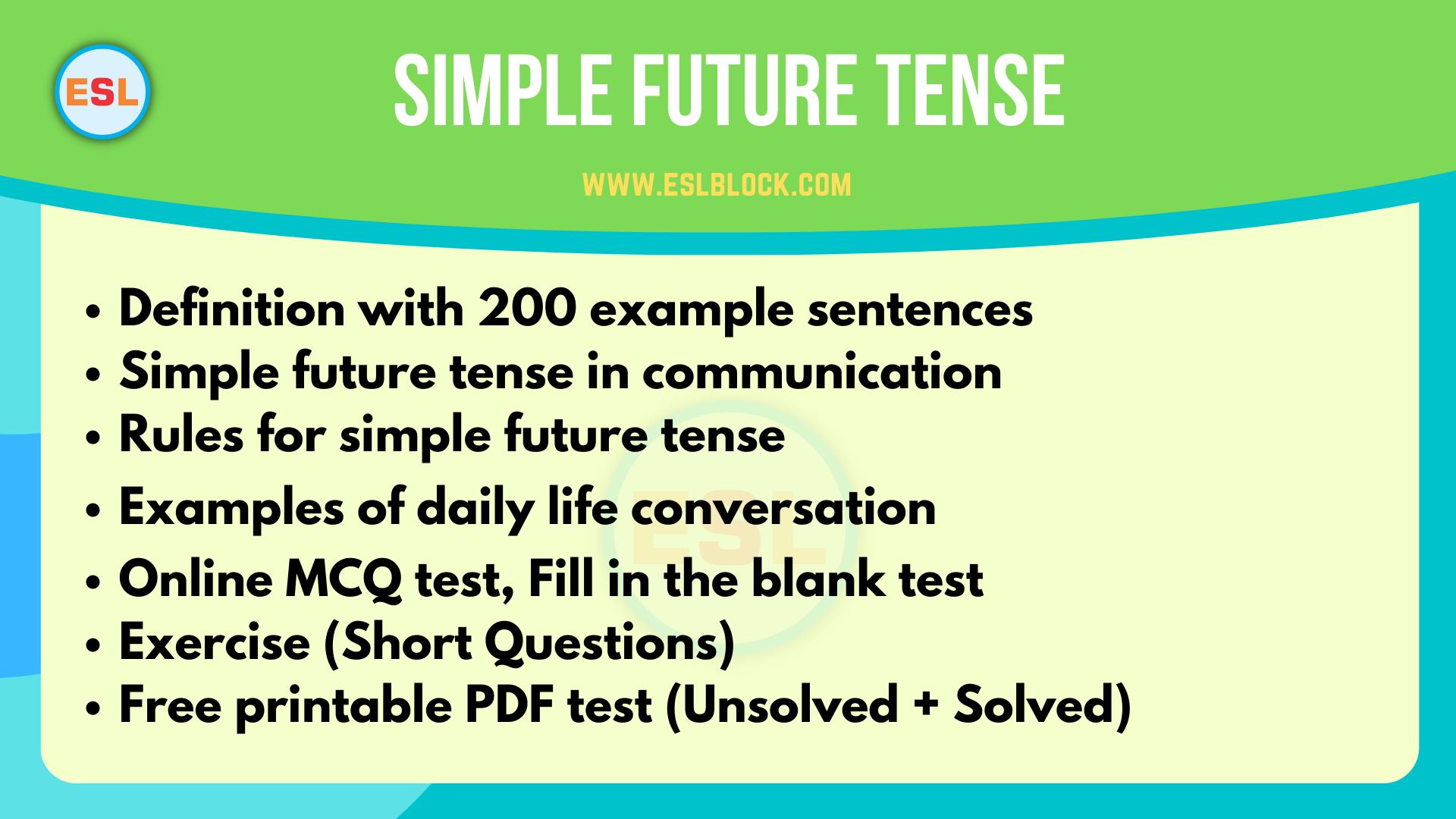
The simple future tense is a grammatical structure used to indicate an action or event that will happen in the future. It is a way to express future plans, predictions or intentions. The simple future tense is formed by using the auxiliary verb “will” or “shall” with the base form of the main verb.
The simple future tense is used to express a future action or event that is expected to happen. This can include plans that have been made, predictions about what will happen, or intentions for future actions. It is often used in conjunction with time markers such as “tomorrow,” “next week,” or “in two years.”
3 Example sentences in the simple future tense with explanation
- “I will travel to Europe next summer.” (future plan)
- “The weather forecast says it will rain tomorrow.” (prediction)
- “I shall finish my project by the end of the week.” (intention)
Read also: Personal Injury Lawyer Greenville NC
It’s important to note that in the first sentence, the speaker has a plan to travel to Europe. In second sentence, the speaker is mentioning a prediction of the weather. And in the last sentence, the speaker is expressing an intention of finishing the project by the end of the week.
Read also: Types of Sentences Worksheets
How to form Simple Future Tense?
The simple future tense is formed by using the auxiliary verb “will” or “shall” with the base form of the main verb. For example, “I will go” or “I shall go.” The use of “shall” is more formal and is generally used in British English, while “will” is more commonly used in American English.
Regular verb conjugation in the simple future tense
For regular verbs, the simple future tense is formed by adding “will” or “shall” before the base form of the verb. For example, “I will walk,” “he will talk,” “she will play.”
Irregular verb conjugation in the simple future tense
Irregular verbs, however, do not follow this pattern and have a unique conjugation in the simple future tense. Some common examples include “will be,” “shall be,” “will have,” “shall have.”
Special cases and exceptions
There are a few exceptions to the rules for forming the simple future tense. For example, “going to” can also be used to express the future, as in “I am going to the store.” Additionally, “shall” is not commonly used in modern English, except in formal or legal contexts.
Rules for affirmative sentences
The affirmative simple future is formed by using the word ‘will’ before the base form of the verb. For example, “I will go to the party”.
Example sentences:
- “I will finish my work before dinner”
- “She will be back in an hour”
- “They will leave for the trip tomorrow”
- “We will watch the movie together”
- “He will meet his friend at the airport”
- “You will enjoy the concert”
- “I will visit my grandparents next week”
- “She will take the train to work”
- “They will have a picnic in the park”
- “We will play basketball after school”
Rules for negative sentences
The negative simple future is formed by using the word ‘will not’ before the base form of the verb. For example, “I will not go to the party”.
Example sentences:
- “I will not finish my work before dinner”
- “She will not be back in an hour”
- “They will not leave for the trip tomorrow”
- “We will not watch the movie together”
- “He will not meet his friend at the airport”
- “You will not enjoy the concert”
- “I will not visit my grandparents next week”
- “She will not take the train to work”
- “They will not have a picnic in the park”
- “We will not play basketball after school”
Rules for interrogative sentences
The interrogative simple future is formed by using the word ‘will’ before the subject of the sentence and followed by the base form of the verb. For example, “Will I go to the party?”.
Example sentences:
- “Will I finish my work before dinner?”
- “Will she be back in an hour?”
- “Will they leave for the trip tomorrow?”
- “Will we watch the movie together?”
- “Will he meet his friend at the airport?”
- “Will you enjoy the concert?”
- “Will I visit my grandparents next week?”
- “Will she take the train to work?”
- “Will they have a picnic in the park?”
- “Will we play basketball after school?”
Short Paragraphs for using the Simple Future Tense
Simple Future Tense in Daily Conversations: Simple future tense is commonly used in daily conversations to express future plans and intentions. For example, “I will see you tomorrow at the park” or “I will call you later.” This tense is also used to make predictions, such as “It will rain tomorrow” or “The traffic will be heavy on the way home.”
Using Time Markers: When using the simple future tense in daily conversations, it’s important to use appropriate time markers to indicate when the action or event will take place. For example, “I will meet you at the coffee shop at 10am” or “I will see you next week.” This helps to provide context and clarity to the conversation.
Making Promises and Offers: The simple future tense is also used in daily conversations to make promises and offers. For example, “I will help you with your project” or “I will bring you dinner tonight.” This tense is a way to show commitment and willingness to take action in the future.
Expressing Intentions: In daily conversations, the simple future tense is often used to express intentions or decisions. For example, “I will quit my job next month” or “I will start a new hobby next week.” This tense is a way to communicate future actions or changes that the speaker has planned or decided to make.
Asking for Help or Information: In daily conversations, the simple future tense is also used to ask for help or information. For example, “Will you help me move next weekend?” or “Will you tell me the time when you get home?” This tense is a way to politely ask for assistance or information in a future context.
Examples of Simple Future Tense in everyday situations
- I will go to the mall tomorrow.
- He will play soccer on Saturday.
- She will meet her friends at the park.
- We will have a picnic on Sunday.
- You will enjoy the movie tonight.
- They will go to the concert next weekend.
- I will not go to the party tonight.
- He will not play video games all day.
- She will not eat meat anymore.
- We will not go to the beach next week.
- You will not sleep in tomorrow.
- They will not watch the game tonight.
- Will I see you later?
- Will he come to the meeting tomorrow?
- Will she bring her own food to the party?
- Will we go to the amusement park next month?
- Will you bring your own drinks to the barbecue?
- Will they stay for the whole event?
- I will visit my grandparents next month.
- He will work late tomorrow.
- She will start her new job next week.
- We will celebrate Sarah’s birthday next weekend.
- You will finish your homework before dinner.
- They will have a good time at the concert.
- I will not eat too much candy today.
- He will not waste his time watching TV.
- She will not wear high heels to the concert.
- We will not go to the party if it rains.
- You will not be late for the meeting.
- They will not forget to bring their tickets.
- Will I get a good grade on the test?
- Will he remember to call his mom?
- Will she be able to finish the project on time?
- Will we have enough time to get ready?
- Will you lend me your book?
- Will they be able to find the location?
- I will watch the game with Jake.
- He will play basketball with his friends.
- She will have dinner with her family.
- We will go to the concert with Emily.
- You will go to the movies with your boyfriend.
- They will have a picnic with their classmates.
- I will not go to the party with David.
- He will not play video games with his brother.
- She will not eat sushi with her coworkers.
- We will not go to the beach with our friends.
- You will not sleep in with your sister.
- They will not watch the game with their roommates.
- Will I see you at the park?
- Will he come to the meeting with his boss?
- Will she bring her own food to the party with her friends?
- Will we go to the amusement park with our kids?
- Will you bring your own drinks to the barbecue with your family?
- Will they stay for the whole event with their colleagues?
- I will help Michael with his homework.
- He will play guitar with Alex.
- She will have a date with Ryan.
- We will go shopping with Karen.
- You will go to the gym with Brad.
- They will have a party with their classmates.
- I will not go to the concert with my ex.
- He will not play video games with his friends anymore.
- She will not eat meat with her sister.
- We will not go to the beach with our cousins.
- You will not sleep in with your roommates.
- They will not watch the game with their dad.
- Will I get a good deal at the store?
- Will he remember to bring his wallet?
- Will she be able to find the right gift?
- Will we have enough money for the trip?
- Will you lend me some money?
- Will they be able to get the tickets in time?
- I will travel with my family to Hawaii.
- He will take a road trip with his buddies.
- She will go backpacking with her friends.
- We will have a vacation with our partner.
- You will go on a cruise with your grandparents.
- They will have a weekend getaway with their coworkers.
- I will not go to the concert with my classmates.
- He will not play video games with his sister.
- She will not eat meat with her friends.
- We will not go to the beach with our parents.
- You will not sleep in with your partner.
- They will not watch the game with their cousins.
- Will I see you at the concert?
- Will he come to the meeting with his team?
- Will she be able to finish her work before the deadline?
- Will we have enough time for the presentation?
- Will you lend me your laptop?
- Will they be able to find the new office?
- I will volunteer at the homeless shelter with Tyler.
- He will go on a hike with Nathan.
- She will have a picnic with her friends at the park.
- We will watch the fireworks with Megan.
- You will go to the museum with your family.
- They will have a barbecue with their neighbors.
- I will not go to the concert with my ex.
- He will not play video games with his friends anymore.
- She will not eat meat with her sister.
- We will not go to the beach with our cousins.
Use of simple future tense in daily conversation
- Sara: I will pick you up from the airport at 8pm.
- John: That sounds good, thanks.
- John: I will bring the drinks to the party.
- Sara: Great, I will take care of the food.
- Sara: Will you help me move next weekend?
- John: Sure, I will be happy to help.
- John: I will call you when I get home.
- Sara: Ok, I will be waiting for your call.
- Sara: I will meet you at the coffee shop at 10am.
- John: Sounds good, I will be there on time.
- John: I will not be able to make it to the meeting tomorrow.
- Sara: That’s okay, I will reschedule it.
- Sara: I will not go to the concert if it rains.
- John: That’s understandable, we will plan something else.
- John: Will you come to the game with me tonight?
- Sara: Sure, I will be happy to come.
- Sara: I will finish my work before dinner.
- John: That’s good, I will do the same.
- John: I will be home late tonight, I will see you tomorrow.
- Sara: Okay, have a good night.
Questions and answers about simple future tense
Q: What is the simple future tense?
A: The simple future tense is a grammatical structure used to indicate an action or event that will happen in the future. It is formed by using the auxiliary verb “will” or “shall” with the base form of the main verb.
Q: How is the simple future tense used in daily conversations?
A: The simple future tense is commonly used in daily conversations to express future plans and intentions, make predictions, make promises and offers, express intentions, and ask for help or information.
Q: How is the simple future tense formed for regular verbs?
A: For regular verbs, the simple future tense is formed by adding “will” or “shall” before the base form of the verb. For example, “I will walk,” “he will talk,” “she will play.”
Q: How is the simple future tense formed for irregular verbs?
A: Irregular verbs do not follow the pattern of adding “will” or “shall” before the base form of the verb. They have a unique conjugation in the simple future tense. Some common examples include “will be,” “shall be,” “will have,” “shall have.”
Q: How are negative and interrogative sentences formed in the simple future tense?
A: Negative sentences in the simple future tense are formed by using “will not” before the base form of the verb. For example, “I will not go.” Interrogative sentences are formed by using “will” before the subject of the sentence and followed by the base form of the verb. For example, “Will I go?”
Q: Are there any exceptions or special cases when using the simple future tense?
A: Yes, the “going to” structure can also be used to express the future, and “shall” is not commonly used in modern English, except in formal or legal contexts.
Fill in the blank questions about simple future tense
- I ________ go to the movies tonight. (will, won’t)
- They ________ be late for the meeting. (won’t, will)
- He ________ play soccer on Saturday. (will, won’t)
- We ________ have a picnic on Sunday. (will, won’t)
- You ________ enjoy the concert. (will, won’t)
- She ________ meet her friends at the park. (will, won’t)
- I ________ help you with your project. (will, won’t)
- Will you ________ come to the party tonight? (will, won’t)
- I ________ finish my work before dinner. (will, won’t)
- They ________ have a good time at the concert. (will, won’t)
Answer:
- I will go to the movies tonight.
- They won’t be late for the meeting.
- He will play soccer on Saturday.
- We will have a picnic on Sunday.
- You will enjoy the concert.
- She will meet her friends at the park.
- I will help you with your project.
- Will you will come to the party tonight?
- I will finish my work before dinner.
- They will have a good time at the concert.
Conclusion
In this post, we covered the basics of the simple future tense, including its definition, formation, and use in daily conversations. We discussed how to form the simple future tense for regular and irregular verbs, as well as the formation of negative and interrogative sentences. We also covered some special cases and exceptions to the rules for forming the simple future tense.
To summarize, the simple future tense is used to indicate an action or event that will happen in the future and is formed by using the auxiliary verb “will” or “shall” with the base form of the main verb. It is commonly used to express future plans and intentions, make predictions, make promises and offers, express intentions, and ask for help or information.
To continue learning and practicing the simple future tense, there are many resources available online. Some websites that offer exercises and quizzes on the simple future tense include English Central, English Grammar Online, and English Page. Additionally, there are many grammar books and language learning apps that can be used to practice the simple future tense.
Practice using the simple future tense in different contexts and situations will help to improve proficiency with it.
If you have enjoyed “simple future tense,” I would be very thankful if you’d help spread it by emailing it to your friends or sharing it on Twitter, Instagram, Pinterest, or Facebook. Thank you!
With ESLBLOCK, you will study with new ideas. If you doubt the qualities of the simple future tense, reach us through our blog’s comment section. Keep checking back! We’ll do our best to give you feedback as soon as possible. Thank you!
Related Articles
Here are some more lists for you!
- List of Fish: Types of Fish with Interesting Facts and Pictures
- List of Mollusks | Types of Mollusks with Interesting Facts
- List Of Farm Animals: Different Types of Farm Animals
- Shellfish | List of Shellfish with Interesting Facts

